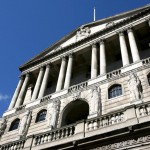UPDATED 07/07/2011 – The latest interst rate prediction (July) can be found here.
Where next for interest rates?
What’s happened since last month’s interest rate prediction?
The short answer is a lot:
- Rates remained at 0.5% – last month the Bank of England’s Monetary Policy Committee (MPC), who are the guys who decide the UK base rate, once again voted to keep the base rate at 0.5%, for the 24rd month in a row.
- Unchanged support for a rate rise – for the second time 3 members of the MPC voted for a rate rise. This position was unchanged from the previous month. So while there is support for a rate rise among MPC members it is not increasing at the moment
- Inflation is getting worse – February's inflation measure (called CPI) was 4.4% which was more than expected. High inflation could derail an economic recovery. To combat inflation interest rates are usually increased.
- Price of oil and therefore petrol has gone through the roof - the uprisings in the oil rich Middle East have seen the price of oil smash through the $120 a barrel mark, levels not seen for 2 and a half years 2008. Unsurprisingly the price of petrol at the pumps has breached 135p a litre - despite George Osborne cutting 1p a litre from fuel duty in the Budget. This is pushing up inflation and prices in the short term (as delivery costs are passed on to consumers). A lot of analysts are claiming this is even more reason to put up interest rates BUT I don’t agree (see later)
- The economy is shrinking more than we thought – economic growth as measured by Gross Domestic Product (GDP) was negative in the last quarter of last year. Official figures put the change in GDP at -0.5%. This was completely unexpected and means that the economic recovery is even more fragile than first feared. The upshot is that if the economy is in a bad way (rising unemployment etc) increasing rates could tip personal finances over the edge and spell disaster. Especially as nearly half of home owners are living in fear of a rate rise. So this could put off the MPC from raising rates.
- Unemployment is still on the rise – now at 2.53million which is a 17 year high. Never a good thing.
- The green shoots are back? – February's negative news on the state of the service sector (which is the most influential sector in the UK economy) was replaced by positive figures in March. But similar figures from the manufacturing sector showed a drop in production between January and February. So we are certainly not out of the woods yet. Also concerns still remain over the level of UK consumer spending . This led to British Chambers of Commerce calling for the MPC to hold off raising rates.
- Mervyn King is still not panicking – Mervyn King, the guy who heads up the group of people who sets the bank base rate is sticking to his guns on the path of inflation and the economic recovery. Old Mervyn has been an advocate of keeping rates at 0.5% as he pretty much thinks everything will sort itself out in the end. His quarterly inflation report pretty much backed up this view.
- UK Economic growth forecasts were cut - by not only the Organisation for Economic Co-operation and Development (OECD) but also by George Osborne during his Budget speech. Suggesting that the recovery is more fragile than first thought.
- More people are calling for a rate increase – more and more noises are being made about the need for a rate rise including by the shadow MPC. But then they would disagree with what the real MPC are doing as that’s what they are there for.
So when will interest rates rise?
This month has been very interesting when it comes to where interest rates are going. The market’s views on when the first rate rise will occur had been see-sawing in the last few months, centring around May. But market consensus is now heading more towards a July date.
Interestingly Reuter’s survey of 63 economists don’t expect a rate rise between July and September.
The Money to the Masses Interest Rate Clock time remains the same
As regular readers will know our interest rate clock sums up a lot of economic data, analysis and opinion, such as the above, and if a jump in interest rates is looking increasingly likely then the clock time will be moved closer to midnight. If it looks less likely then it will move away from midnight (with 23.45 being an expectation of an interest rate drop). So you can ignore all the waffle and just concentrate on the clock time.
Swathes of good and bad economic data have got markets in a jitter. But in February I wound the clock forward (indicating an increasing chance of a rate rise) before everyone else started talking of imminent rate rises. So I must know what I’m talking about.
But inflation is the key problem and everyone is citing the rising petrol price as the final nail in the coffin for not raising rates. But I don’t necessarily agree. Rising petrol prices are squeezing consumers wallets at a time when unemployment is still on the rise. Consequently it means that consumers have less money in their wallets to spend on other things. So the most likely outcome, in the short term, is a drop in consumer spending rather than an increase in wage demands. And it is the later which starts driving inflation because the cost of rising wages will have to be factored into the cost the goods and services we buy. If prices go up we demand higher wages again and so on and so on. A spiral of inflation. But a recent survey suggested that private sector pay at UK listed companies has risen at the slowest rate on record. If consumer spending is squeezed and wages are constrained then demand within the economy will fall which provides a downward pressure on inflation.
In addition, raising rates usually dampens inflation by cooling spending (saving becomes more attractive and credit is more expensive). Less demand means lower prices hence lower inflation. But the oil price is an external factor to the UK so raising rates won’t make any difference to this particular inflationary factor.
For me, I think there are still a number of uncertainties in the economy for rates to rise just yet. An early rate rise could spell trouble for the fragile economic recovery. So for this reason I am leaving the clock time at 23:56 for now.
The historic clock time adjustments are listed below to give you an idea of how my expectation of an interest rate rise has changed over time:
- May 2010 – 23:55
- July 2010 – 23.54
- September 2010 – 23.53
- January 2011 – 23.54
- Feb 2011 – 23.56
Should you rush to fix your mortgage now?
Luckily I’ve answered this question in my article Reader’s Question: Should I fix my mortgage now?





